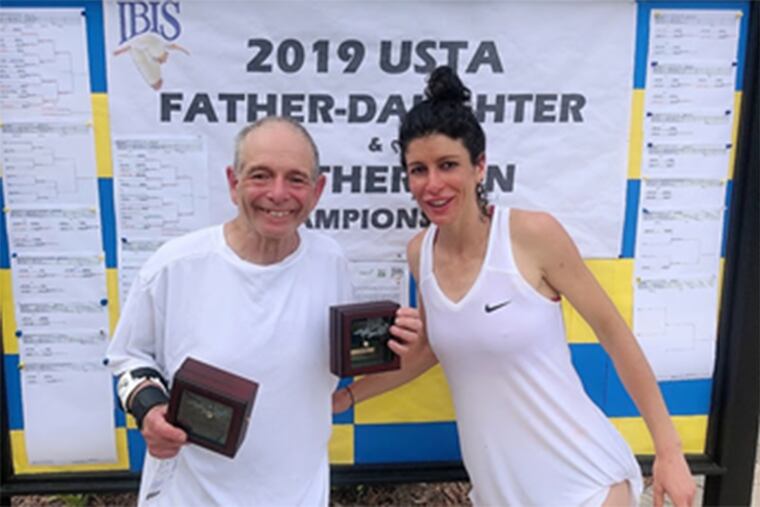How his own cardiac crisis made this Philly psychiatrist a better doctor
Medicine looks entirely different from the patient's perspective.

I became a better doctor on the day I became a cardiac patient. On that day, I experienced the helpless, vulnerable, and needy feelings of a dependent patient, coupled with having to put all my trust in a physician whom I did not know.
I had always been an athlete in excellent shape. However busy my medical practice would get, every day I set aside a few hours for tennis, walking, or running, and an evening stationary bike session. My children and I have won tennis tournaments all over the country, ranking as U.S. champions more than a dozen times. My habits even earned me a 2011 profile in The Inquirer, discussing how I used exercise and diet to stay healthy and to deal with the stress of being a psychiatrist.
At the end of 2018, my blood test results indicated that I had a lipid panel of a healthy 30-year-old. Then in March 2019, at age 72, my delusional bubble burst.
My daughter Julia and I were the No. 1 seed in a father-daughter tennis tournament in Chicago. We were in the semifinal match, we had won the first set, and we were up 3-0. Then I fell, hitting my head on the net post. I felt nauseated but kept playing after determining I wasn’t bleeding. Five minutes later, I ran off the court so I could vomit and come back to finish the match.
The tournament director, taking one look at my gray face, called 911. The paramedics said they thought I may be having a heart attack. I knew that this could not possibly be so, but finally agreed to let technicians perform an EKG. Seeing the results, I realized I was having a heart attack and let them take me to the hospital.
I told them I was a physician, figuring I’d get their best doctor assigned to my case. But no, I was evaluated by a resident. I felt even more deflated.
They performed a cardiac catheterization and put a stent in my right cardiac vessel. I had many questions, but no one seemed to have time to answer them for what they all thought was very routine. I felt very insignificant, scared, and even invisible.
I was discharged a few days later and was told my heart problem was fixed. I was instructed to follow up with a cardiologist in Philadelphia.
The first night home, I experienced chest pain. After another blood test, indicating raised troponin levels, I was informed they needed to perform another cardiac catheterization. I learned I had two more coronary artery blockages, each 95% to 99% blocked, in my left ventricle.
How could the doctor in Chicago make such a significant mistake? What happened? I would never know.
The interventional cardiologist in Philadelphia was able to repair one coronary artery, but the other blockage in my left anterior descending (LAD) coronary artery (yes, the widow maker) had calcified too much for a stent. I would need cardiac bypass surgery. But I would have to wait two long weeks for the anticoagulant effect of the blood thinner I had been put on to wear off before I could undergo bypass surgery.
Meanwhile, I was calling either my cardiologist, surgeon, or his nurse practitioner almost daily with questions and concerns. Thankfully, I was met with great patience, understanding, and detailed answers from all involved. My robotic cardiac bypass surgery in March went very well, and I am now back to work, playing tennis, jogging slowly, and riding my stationary bike.
I had always thought of myself as a caring and empathic psychiatrist. But my experience as a cardiac patient made me realize that I can do better.
And though every doctor will become a patient one day, I hope my colleagues who regard themselves as invincible can learn from my experience.
You can be a better doctor now if you are mindful that however minor you think the physical or emotional issues facing your patients are, the problem may be catastrophic to them. They need your undivided attention. Any problems are a significant event for the patients who have them. Really listen to their concerns or questions and address each one with patience, understanding, and accurate information. Be genuine, empathetic, and nonjudgmental, and your patients are far more likely to be open and honest with you.
There’s another happy ending to my story: In October, my daughter Julia and I won the USTA National Father-Daughter Clay Court Championship in West Palm Beach.
Richard Cohen is a board-certified psychiatrist in Philadelphia.